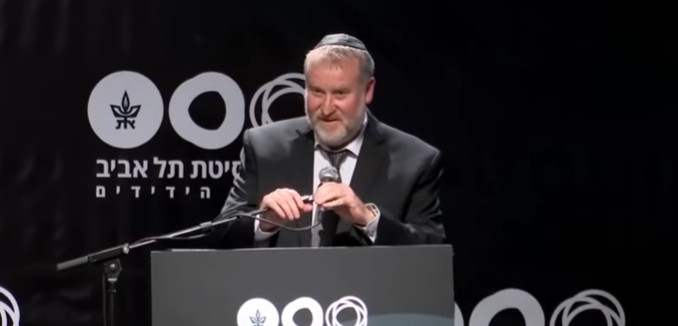Israeli Attorney-General Avichai Mandelblit announced his intention to indict Prime Minister Benjamin Netanyahu on charges of bribery and breach of trust with respect to three investigations into the conduct of Israel’s long-serving leader, The Jerusalem Post reported Thursday.
The most serious charge of bribery is with respect to what is called Case 4000. Early in his current term as prime minister in 2015, Netanyahu abruptly fired Communications Ministry director-general Avi Berger and replaced him with former campaign manager and ally, Shlomo Filber.
Filber subsequently derailed Berger’s efforts to upgrade Israel’s internet infrastructure. The move reportedly benefited Shaul Elovitch, owner of Israeli communications giant Bezeq and the news website Walla, who would have been facing more competition had the upgrades continued.
“This allegedly constituted bribery,” the Post reported, “as Netanyahu worked to set government policies that would increase monetary profits for Elovitch in exchange for positive media coverage.”
Despite Sara Netanyahu’s alleged involvement in the scheme, Mandelblit is not expected to recommend an indictment against her.
In Case 1000, it is alleged that Netanyahu received expensive gifts, estimated to be worth NIS 1,000,000 ($276,000) from wealthy supporters. Netanyahu has admitted to receiving the gifts, saying that they were given over the course of his friendship with billionaires Arnon Milchan and James Packer.
However, Milchan has said that though the gifts were originally given willingly, at some point the giving became involuntary.
The police, according to the Post, charge “that part of the evidence against Netanyahu that the gifts were illegal and not part of a standard friendly relationship included the constancy, regularity and involvement of Sara and a bureaucracy of secretaries, drivers and assistants in delivering the gifts.”
In addition, evidence obtained in the investigation shows that Netanyahu attempted to pass a law that would have saved Milchan millions of shekels in tax breaks. The police say that Netanyahu pressured then-finance minister Yair Lapid to approve the law, but finance ministry officials blocked the law on grounds that it wasn’t in the state’s interest.
In Case 2000, it is alleged that Arnon (Noni) Mozes, owner of Yediot Achronot, sought Netanyahu’s help in curtailing Israel Hayom, a free paper that was causing losses for Yediot. In exchange, it is alleged, Yediot would give Netanyahu a favorable interview and generally make the paper’s coverage of the prime minister more positive.
Most of the prosecution team recommended that Netanyahu be charged with bribery as in Case 4000. However, Mandelblit overruled them and is pursuing charges of breach of trust, in part, because in this case the bribe never took place.
Mandelblit’s announcement, coming weeks before the election, could have a significant effect on the outcome.
Right now, Netanyahu’s Likud party and the Blue and White party, led by newcomer and former IDF chief of staff Benny Gantz are just about tied in the polls. The announcement could hurt Likud and turn the election to the Gantz-led opposition.
Even if Netanyahu and Likud form the next government, the indictment could still affect Israeli politics.
Over the next three to 12 months, Mandelblit will hold pre-indictment hearings with Netanyahu’s lawyers. If Mandelblit decides to indict Netanyahu for bribery, he could be forced from office if he doesn’t resign. Sources close to Mandelblit have told the Post, the attorney general would not defend Netanyahu against a petition to force his resignation in the case he was indicted for bribery.
[Photo: i24NEWS / YouTube ]




